2018-03-02 08:56
Ship, grind and press - ceramics in the making
Panalpina Energy and Project Solutions did it again with another #MajorMove. This time by handling two port-to-door shipments for one of Brazil’s leading ceramics makers with an output of over 30 million square meters of tiles per year. The tiles are produced for a global market and used in architecture and interior design.
The move included ocean and overland transportation of an industrial mill and a hydraulic press from Genoa, Italy’s busiest port by cargo tonnage, to Paranagua, one of the main gateways in southern Brazil, as well as the installation of both machines in Tijucas, Santa Catarina. Made in Italy by industry leader Sacmi, the 176-ton state-of-the-art hydraulic press Imola PH 7500 was dismantled into its two main components and packed separately for transport.
The main unit (7.63x3.89x2.59 m) had a weight of 120 tons, while its press motion system (3.17x2.66x0.90 m) was 56 tons. Hydraulic presses are used for the forming of ceramics powder. The second machine was a fully-assembled 32-ton Sacmi MTD drum mill (8.0x3.62x3.67 m) designed for the wet grinding of ceramic clays and glaze frits.
These units are generally used for the production of porcelainized stoneware. “Although the parts had a long way to go, the main challenge was to navigate the last few corners inside the warehouse at project site. The narrow doors, warehouse columns, internal structures, and machines surrounding the points required a very detailed analysis and complex execution. The handling required several maneuvers to have both press and mill positioned for final lifting,” says Anderson Antonio, Panalpina’s country head of Energy and Project Solutions, Brazil.
“One of the reasons why Panalpina was chosen for this move was our ability to provide this kind of last-mile service for oversized cargo, which is essential for the high-output globalized economy we live in,” concludes Anderson. Both machines are now an integral part of the customer’s production plant. For the final touches, the tiles go through big burners for drying and sintering, and after more production steps the finished products are then shipped out to countries on five continents, mainly through the same port of Paranagua that saw the press and mill arrive in Brazil.
The move included ocean and overland transportation of an industrial mill and a hydraulic press from Genoa, Italy’s busiest port by cargo tonnage, to Paranagua, one of the main gateways in southern Brazil, as well as the installation of both machines in Tijucas, Santa Catarina. Made in Italy by industry leader Sacmi, the 176-ton state-of-the-art hydraulic press Imola PH 7500 was dismantled into its two main components and packed separately for transport.
The main unit (7.63x3.89x2.59 m) had a weight of 120 tons, while its press motion system (3.17x2.66x0.90 m) was 56 tons. Hydraulic presses are used for the forming of ceramics powder. The second machine was a fully-assembled 32-ton Sacmi MTD drum mill (8.0x3.62x3.67 m) designed for the wet grinding of ceramic clays and glaze frits.
These units are generally used for the production of porcelainized stoneware. “Although the parts had a long way to go, the main challenge was to navigate the last few corners inside the warehouse at project site. The narrow doors, warehouse columns, internal structures, and machines surrounding the points required a very detailed analysis and complex execution. The handling required several maneuvers to have both press and mill positioned for final lifting,” says Anderson Antonio, Panalpina’s country head of Energy and Project Solutions, Brazil.
“One of the reasons why Panalpina was chosen for this move was our ability to provide this kind of last-mile service for oversized cargo, which is essential for the high-output globalized economy we live in,” concludes Anderson. Both machines are now an integral part of the customer’s production plant. For the final touches, the tiles go through big burners for drying and sintering, and after more production steps the finished products are then shipped out to countries on five continents, mainly through the same port of Paranagua that saw the press and mill arrive in Brazil.
< Korea Shipping Gazette >
많이 본 기사
- ‘부산 환적·광양 수출입’ 컨물동량 1%대 성장한국해양교통안전공단 이사장 공개 모집“한국해운 80년 역사 담았다” 해운역사기념관 개관태웅로직스, 이천 풀필먼트센터 구축…이커머스 물류 진출부산항 컨테이너 물동량 2488만TEU…최대치 경신‘컨선·LNG운반선 덕’ 선박수출액 8년만에 300억弗 돌파국제물류협회, 마이스터고 대상 ‘영마이스터 물류캠프’ 운영스위스 MSC, 부산-지중해 항로 개편…운송시간 단축해수부 신임 해사안전국장에 이수호 국장 임명기고/ 선박건조계약상 하자보증시 면책조항의 해석
- 지난해 中-유럽 정기화물열차 317만TEU 운송…전년比 8%↑엑소텍, 프랑스서 물류 자동화 행사 ‘엑소서밋 2026’ 개최日 나고야항, 6년만에 260만TEU 달성인천항만공사, 인공지능 기반 혁신 우수사례 발굴 주력싱가포르항공, 싱가포르-리야드 직항 노선 신설인사/ 국립목포해양대학교인사/ 해양수산부해수부 해운물류국장에 김혜정, 부산해수청장에 허만욱 임명Hainan FTP's First Month of Island-Wide Special Customs Operations B...부산신항만, 에너지 취약계층 지원 성금 전달
스케줄 많이 검색한 항구






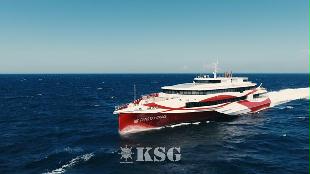
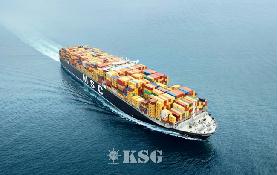
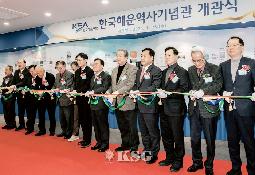
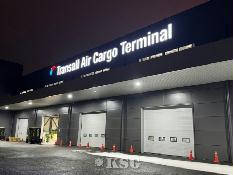
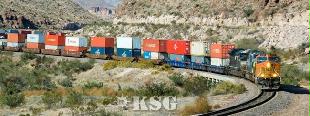
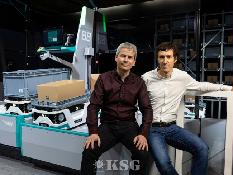
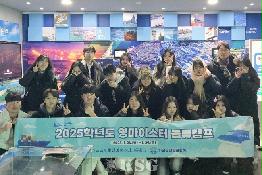
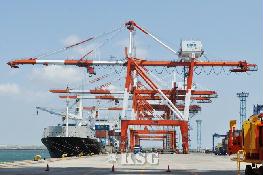
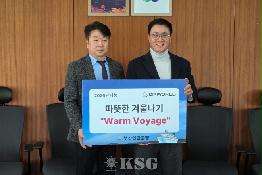
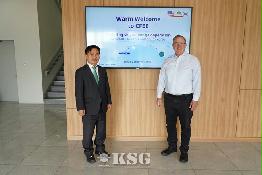
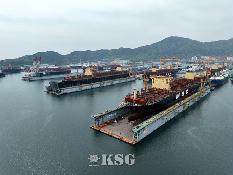
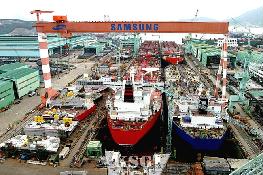
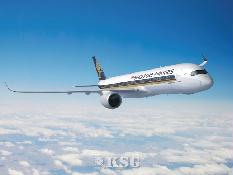
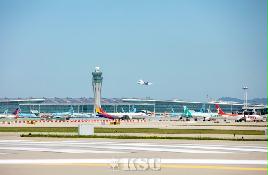
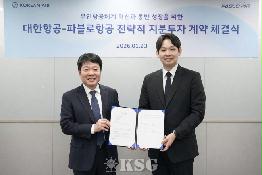
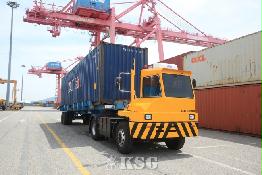


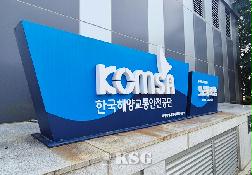
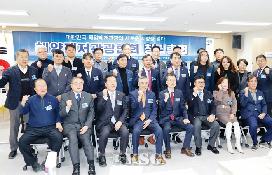
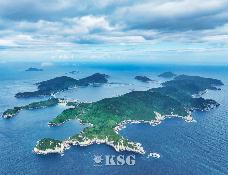

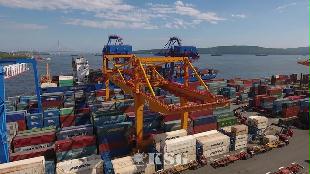
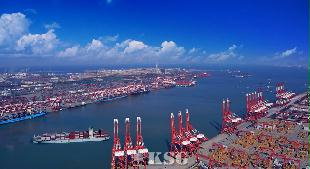
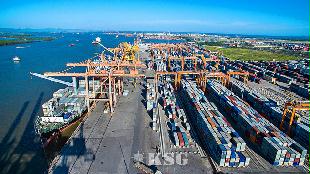
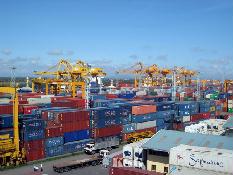





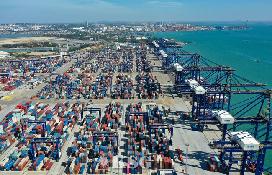
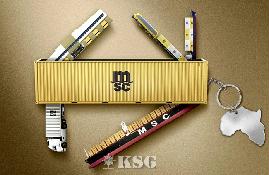
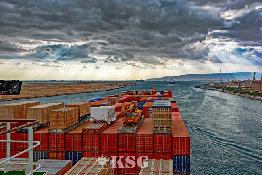
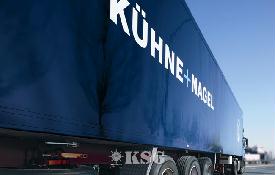
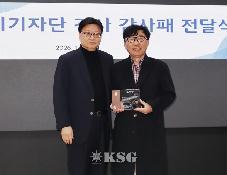
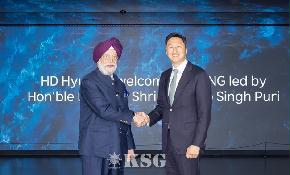




















0/250
확인